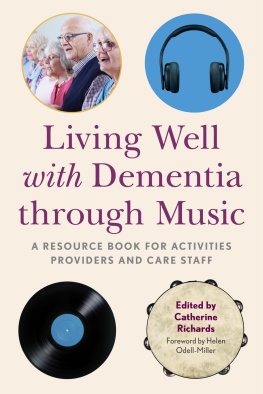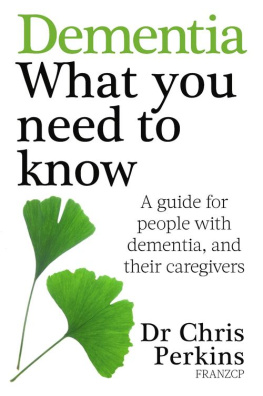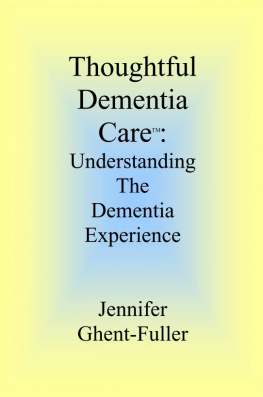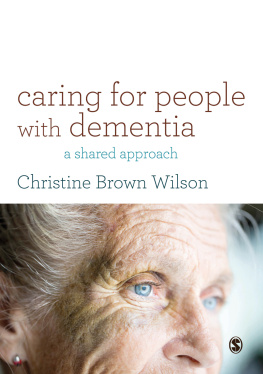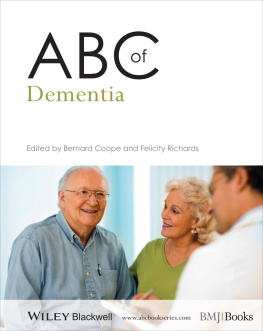Rachael Wonderlin - When Someone You Know Is Living in a Dementia Care Community: Words to Say and Things to Do
Here you can read online Rachael Wonderlin - When Someone You Know Is Living in a Dementia Care Community: Words to Say and Things to Do full text of the book (entire story) in english for free. Download pdf and epub, get meaning, cover and reviews about this ebook. year: 2016, publisher: Johns Hopkins University Press, genre: Home and family. Description of the work, (preface) as well as reviews are available. Best literature library LitArk.com created for fans of good reading and offers a wide selection of genres:
Romance novel
Science fiction
Adventure
Detective
Science
History
Home and family
Prose
Art
Politics
Computer
Non-fiction
Religion
Business
Children
Humor
Choose a favorite category and find really read worthwhile books. Enjoy immersion in the world of imagination, feel the emotions of the characters or learn something new for yourself, make an fascinating discovery.

- Book:When Someone You Know Is Living in a Dementia Care Community: Words to Say and Things to Do
- Author:
- Publisher:Johns Hopkins University Press
- Genre:
- Year:2016
- Rating:5 / 5
- Favourites:Add to favourites
- Your mark:
When Someone You Know Is Living in a Dementia Care Community: Words to Say and Things to Do: summary, description and annotation
We offer to read an annotation, description, summary or preface (depends on what the author of the book "When Someone You Know Is Living in a Dementia Care Community: Words to Say and Things to Do" wrote himself). If you haven't found the necessary information about the book — write in the comments, we will try to find it.
A guide to help family and friends navigate the emotional and practical challenges they face when someone they love is living in community care.
Life changes dramatically for the entire family when the decision is made to move a person who has dementia from home to community care. Rachael Wonderlin, a gerontologist, dementia care expert, and popular dementia care blogger, helps caregivers cope with the difficult behaviors, emotions, and anxieties that both they and their loved one may experience.
Writing from her own practice and drawing on the latest research in gerontology and dementia, Wonderlin explains the different kinds of dementia, details the wide range of care communities available for people who have dementia, and speaks empathetically to the worry and guilt many families feel. Do not let anyone make you feel like you have taken the easy way out by choosing a dementia care community, she writes. You are still going to deal with a lot of challenging behaviors, concerns, and questions regarding your loved ones care.
When Someone You Know Is Living in a Dementia Care Community is an accessible guide offering answers to such questions as:
How do I choose a place for my loved one to live?
What can I find out by visiting a candidate memory-care community twice?
What do I do if my loved one asks about going home?
How can I improve the quality of my visits?
What is the best way to handle conflict between residents, or between the resident and staff?
How can I cope with my loved ones sundowning?
What do I do if my loved one starts a romantic relationship with another resident?
An indispensable book for family members and friends of people with dementia, When Someone You Know is Living in a Dementia Care Community touches the heart while explaining how to make a difficult situation better.
Rachael Wonderlin: author's other books
Who wrote When Someone You Know Is Living in a Dementia Care Community: Words to Say and Things to Do? Find out the surname, the name of the author of the book and a list of all author's works by series.

